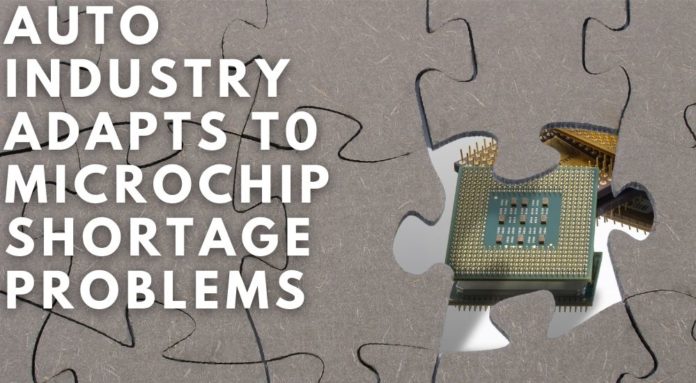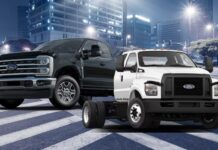Friends, as I’m sure you already know, the infamous microchip shortage continues to march on into its second year. Despite the fact that some auto industry leaders assured us a year ago that it would pretty much blow over by the end of the year, we’re still watching car manufacturers try to figure out how to deal with this shortage. Since experts are currently predicting this won’t be over until sometime next year, the engineers and hard-working corporate officers at companies like GM and Ford are working overtime to make sure their customers still get a great vehicle at a fair price.
Who Needs Comfort?
One of the most ingenious solutions to this microchip crisis has recently come out of Ford, and you’ll find it implemented on the 2022 Explorer available right now. Rather than delay production or hold off on delivering models until they’re complete, Ford is offering their valued customers a brand-new Explorer without rear-seat climate controls. Even if you pay for a trim with this functionality, you’re going to get a Ford Explorer that doesn’t actually have it since they don’t have the chips to make it work.
Don’t worry, though; at some point, Ford will allow their customers to bring these models back to a dealership to have the functionality retrofitted into them. If you don’t want to mess with going back to get the functionality later, then you have another option: just wait for your vehicle to actually be fully-built with all of the technology you’re paying for. The third option from Ford is to just go somewhere else.
Gas is Plentiful and Cheap, Right?
Equally innovative is the recent removal of Stop/Start technology from engines in the massively popular Ford F-150. GM has followed suit with a similar solution, and you won’t find Auto Stop/Start on some of their pickups either. While some truck fans out there aren’t into the stop/start functionality, it’s very effective at boosting overall fuel economy and saving you money on gas––but who needs to worry about that anyways?
The good news is that this technology can’t be retrofitted back into the vehicle after it’s been built like the climate controls can––so if you get a new truck that doesn’t have Stop/Start functionality, then that’s what you get. My sources inside Ford and GM have told me that they’re working on figuring out what other functionality they can remove while keeping the vehicle “functional.” According to rumors I’ve heard, this could include non-essential technology such as other climate controls, power-adjustable seating, cruise control, acceleration and braking, the latches to keep the trunk shut, and more optional features that are unnecessary.
Other Industry Leaders
I don’t want you to think I’m picking on our beloved domestic brands by pointing out their innovative solution to the chip shortage. Ford and GM are far from the only companies instituting these sorts of changes and––as usual––competition means everyone else wants to innovate too. BMW has removed touchscreen functionality and Park Assist technology from more than a half-dozen of its popular models, while Mercedes-Benz has eliminated impressive features like wireless charging pads for smartphones and premium audio options. But it’s not like people choose BMW or Mercedes for indulgent luxury or bold technology, right?
My hope is that the manufacturers will see these innovations as the opportunities they really represent. With the recent push toward turning more car features into a “service” rather than something you simply buy, this would be a great way to combine these exciting, consumer-friendly options. Who needs to buy a rear-seat climate control system when you can pay full price for a vehicle and get to rent that functionality at a later date and time? I, for one, am looking forward to my next car and the freedom to lease the seat belts, rent my rear-wheel brakes, and enjoy the speaker system six months after I buy it when I finish my layaway plan to have it finally installed so I can stream music through the subscription service of their choice.
Editor’s Note: At this time, we’re confident that the auto industry will absolutely not use this situation as a way to charge the same amount for fewer features in their vehicles for the foreseeable future. This is certainly just an emergency solution, and in the next couple of years, everything will return to normal. No corporation would ever try to profit off the pandemic or the various crises going on around the world for its own gain. Thank you.












